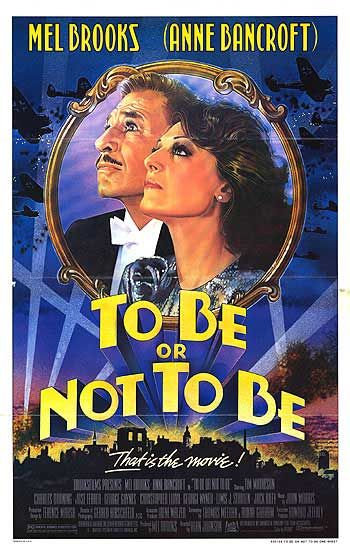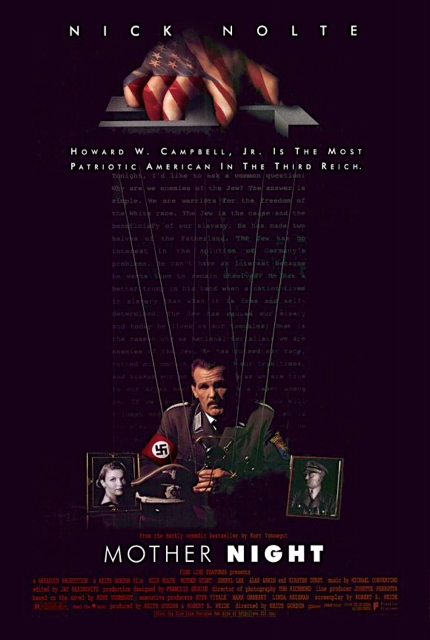Wednesday Double Feature – World War II Resistance
The basic idea for this week’s theme was supposed to be something to the effect of entertainers as members of the resistance in world war II, but in the end this became a bit of a stretch with the two films having very little in common , one being a slapstick farce and the other an adaptation of a Kurt Vonnegut novel.
 To Be Or Not To Be was the Mel Brooks remake of the film of the same name starring Jack Benny and Carole Lombard directed by Ernst Lubitsch (Which I had intended to get, but couldn’t find it in the comedy section… in hindsight it was probably downstairs under Lubitsch)
To Be Or Not To Be was the Mel Brooks remake of the film of the same name starring Jack Benny and Carole Lombard directed by Ernst Lubitsch (Which I had intended to get, but couldn’t find it in the comedy section… in hindsight it was probably downstairs under Lubitsch)
It tells the story of a variety show in Warsaw Poland led by the egotistical Frederick Bronski played by Brooks and his wife played by Anne Bancroft. When Poland is invaded by Germany they find themselves pushed into the resistance with hilarity ensuing. This was a fun farcical comedy based on disguises and misunderstanding, though I admit It took me a little while to get into it since for me the farce and the subject matter (the holocaust which in his own way Brooks takes very seriously) it was addressing clashed a little too much. But once it got it’s pace going it’s hilarious with Brooks, Bancroft and their troop try to con their way to freedom and survival , with Charles Durning as the SS commandant nearly stealing the show.
 Mother Night, starring Nick Nolte, as wasn’t quite what I expected.Sure I knew it was a Kurt Vonnegut novel and sure I knew Nolte’s character, Howard W. Campbell Jr was a Nazi propagandist who was actually sending coded messages to the Americans but I hadn’t realized that that was just a small part of the film. The majority of the story being about Campbell being labeled a war criminal, while being idolized by White Supremacists.
Mother Night, starring Nick Nolte, as wasn’t quite what I expected.Sure I knew it was a Kurt Vonnegut novel and sure I knew Nolte’s character, Howard W. Campbell Jr was a Nazi propagandist who was actually sending coded messages to the Americans but I hadn’t realized that that was just a small part of the film. The majority of the story being about Campbell being labeled a war criminal, while being idolized by White Supremacists.
All in all this film was much better than I expected. It did a good job staying true to the material, which considering Vonnegut’s writing style is easier said than done, I was especially impressed by the framing device of Campbell writing his memoirs in an Israeli prison. And the way it shows what Campbell’s intentions were are almost irrelevant when compared to how history perceives those deeds







You must be logged in to post a comment.